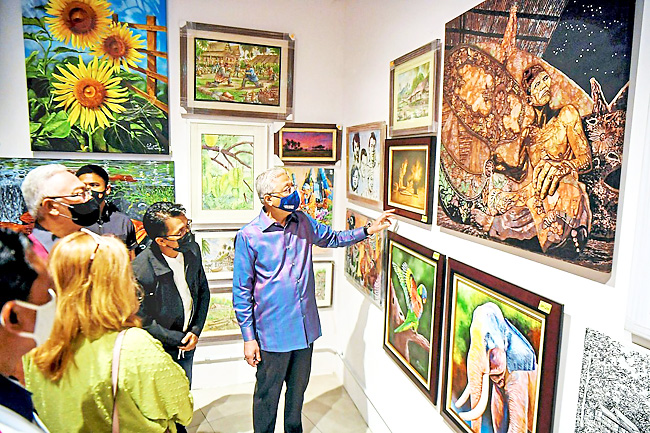THE STAR – Social entrepreneurship in Malaysia has plenty of potential to grow, but it needs a solid development framework to meet its potential, said Datuk Seri Ismail Sabri Yaakob.
Thus, the Malaysian Prime Minister said the new Malaysian Social Entrepreneurship Blueprint 2030 (SEMy2030) was established to help social enterprises gain access to training programmes, financial assistance and other tools needed to increase their competency.
“Unlike the cooperatives sector or micro, small and medium enterprises (MSMEs) – the development of social entrepreneurship in Malaysia is still in its infancy.
“Key elements like having a regulatory framework, financial infrastructure and financial safety net are still not available,” he said.
“Social entrepreneurial activities are now gaining attention and are recognised as an important element in addressing socio-economic problems.
“The government is aware of the potential and important role of social entrepreneurship in driving the country’s socio-economic growth. Therefore, a long-term national policy needs to be established.”
He explained that the SEMy2030, which was developed by the Entrepreneur Development and Cooperatives Ministry, would provide a new national direction for the development of social entrepreneurship in Malaysia.

“The blueprint is an effective regulatory and governance framework that will help ensure social enterprises operate with responsibility and accountability, and at the same time build confidence of the public and the private sector,” Ismail Sabri said in his speech at the launch of SEMy2030 here.
Also present was Entrepreneur Development and Cooperatives Minister Tan Sri Noh Omar.
The blueprint consists of initiatives that will help increase awareness of the social entrepreneurship sector.
“The initiatives in the blueprint also aim to cultivate a culture of social entrepreneurship that consistently sets its sights on improving the livelihoods of the community.
“There are also targetted strategies outlined in the plan to help social enterprises enhance their capabilities and competencies.
“These include providing training on technology adaptation and digitisation, expanding access to financial support as well as facilitating a pathway to domestic and international markets,” he said.
Ismail Sabri hopes to see social enterprises recognised as important contributors in developing a prosperous, inclusive and sustainable Malaysia in 2030.
“I am confident that social entrepreneurship is an effective approach to stimulate socio-economic development among Malaysian Families.
“I call upon public and private agencies, social impact investors and corporate bodies to provide strong and continuous support and cooperation towards the development of social entrepreneurship in Malaysia.
“Youths and graduates are also invited to come up with ideas on how to strengthen social entrepreneurship,” he said.
At the event, Ismail Sabri presented grants to social enterprises worth more than MYR800,000 to nearly 500 recipients.
He visited several booths set up by social entrepreneurs on the sidelines of the launch event, as well as the adjacent Malaysia Grand Bazaar – an “artisanal” mall which showcases local brands by the Malaysian creative industry.
At a press conference later, Noh said the ministry’s target is to produce 10,000 social enterprises by 2030.








